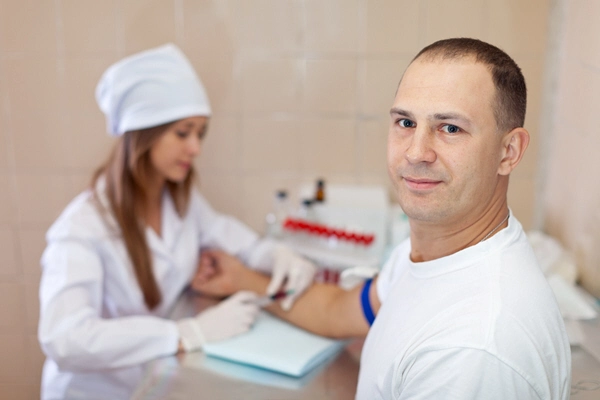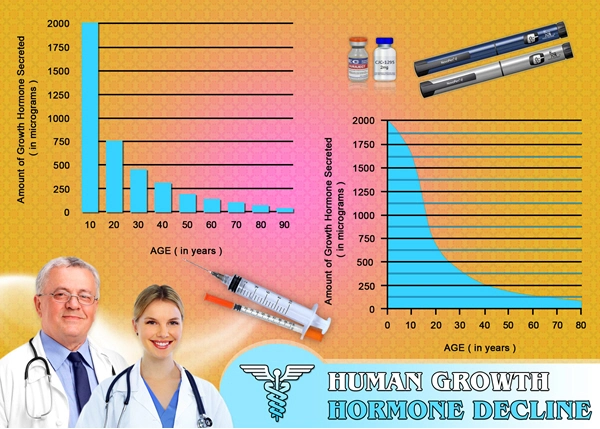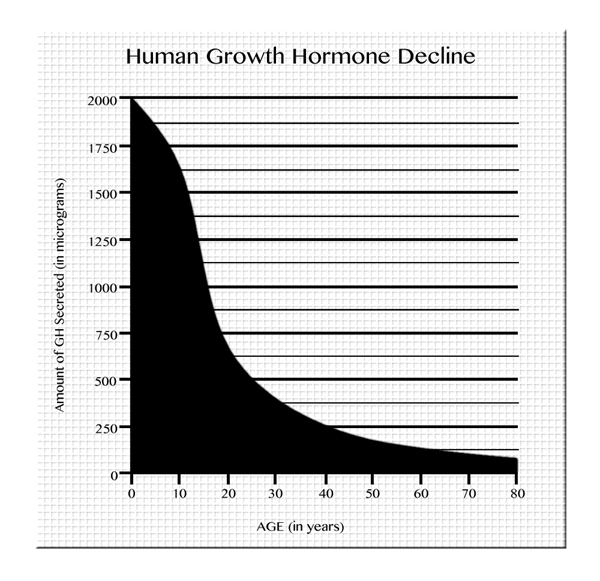Introduction
Obesity has reached epidemic proportions in the United States, with significant implications for public health. Among the myriad health issues associated with obesity, its impact on urological health in American men is particularly concerning. This article delves into how obesity affects urological conditions, emphasizing the importance of weight management for maintaining urological well-being.
The Prevalence of Obesity in American Men
Obesity is a pervasive issue in the United States, with recent data indicating that nearly 40% of American men are obese. This statistic is alarming, as obesity is not only a risk factor for cardiovascular diseases and diabetes but also has profound effects on urological health.
Obesity and Prostate Health
One of the most significant urological concerns related to obesity is its impact on prostate health. Studies have shown that obese men are at a higher risk of developing aggressive prostate cancer. The excess adipose tissue in obese individuals can lead to increased levels of hormones such as estrogen, which may promote the growth of prostate cancer cells. Moreover, obesity can complicate the diagnosis and treatment of prostate cancer, as it can affect the accuracy of prostate-specific antigen (PSA) tests and increase the risk of surgical complications.
Erectile Dysfunction and Obesity
Erectile dysfunction (ED) is another urological condition that is closely linked to obesity. The relationship between obesity and ED is multifaceted, involving both physiological and psychological factors. Obesity can lead to vascular changes that impair blood flow to the penis, a critical factor in achieving and maintaining an erection. Additionally, the psychological burden of obesity, including low self-esteem and depression, can exacerbate ED. Studies have shown that weight loss can significantly improve erectile function, highlighting the importance of maintaining a healthy weight for sexual health.
Urinary Incontinence and Obesity
Obesity also increases the risk of urinary incontinence, a condition that can significantly impact quality of life. The excess weight can put additional pressure on the bladder and pelvic floor muscles, leading to stress incontinence. Furthermore, obesity is associated with an increased risk of developing overactive bladder syndrome, which can cause urgent and frequent urination. Weight loss has been shown to alleviate symptoms of urinary incontinence, underscoring the need for weight management in the treatment of this condition.
Kidney Stones and Obesity
The prevalence of kidney stones is higher among obese individuals. Obesity can lead to metabolic changes that increase the risk of stone formation, such as elevated levels of uric acid and calcium in the urine. Additionally, obesity is associated with a higher incidence of diabetes and hypertension, both of which are risk factors for kidney stones. Maintaining a healthy weight through diet and exercise can help reduce the risk of developing kidney stones.
The Role of Lifestyle Interventions
Addressing obesity requires a multifaceted approach that includes lifestyle interventions such as diet modification, regular physical activity, and behavioral therapy. These interventions not only help in achieving weight loss but also improve overall urological health. For instance, a diet rich in fruits, vegetables, and whole grains can reduce the risk of kidney stones, while regular exercise can improve blood flow and reduce the risk of ED.
Conclusion
The impact of obesity on urological health in American men is profound and multifaceted. From increasing the risk of aggressive prostate cancer to exacerbating conditions like erectile dysfunction and urinary incontinence, obesity poses significant challenges to urological well-being. By prioritizing weight management through lifestyle interventions, American men can mitigate these risks and improve their urological health. As the prevalence of obesity continues to rise, it is imperative that healthcare providers and individuals alike recognize the importance of maintaining a healthy weight for optimal urological health.

- Urological Health Guide: Conditions, Sexual Wellness, and Lifestyle Impact on American Men [Last Updated On: March 8th, 2025] [Originally Added On: March 8th, 2025]
- Modern Urology: Minimally Invasive, Advanced Diagnostics, Telemedicine for American Males [Last Updated On: March 18th, 2025] [Originally Added On: March 18th, 2025]
- Urological Conditions and Their Impact on Male Fertility: Diagnosis and Treatment [Last Updated On: March 18th, 2025] [Originally Added On: March 18th, 2025]
- Genetics and Urological Health: Insights for American Men's Well-being [Last Updated On: March 19th, 2025] [Originally Added On: March 19th, 2025]
- Preventing Urological Infections in American Males: Risks, Measures, and Health Strategies [Last Updated On: March 19th, 2025] [Originally Added On: March 19th, 2025]
- Exercise and Urological Health: A Comprehensive Guide for American Men [Last Updated On: March 20th, 2025] [Originally Added On: March 20th, 2025]
- Urological Health Strategies for American Men: Balancing Work and Wellness [Last Updated On: March 20th, 2025] [Originally Added On: March 20th, 2025]
- Urological Health Guide for American Men: Symptoms, Conditions, and Prevention [Last Updated On: March 21st, 2025] [Originally Added On: March 21st, 2025]
- Smoking's Impact on Urological Health in American Men: Risks and Cessation Benefits [Last Updated On: March 21st, 2025] [Originally Added On: March 21st, 2025]
- Hydration's Vital Role in Urological Health for American Males: Strategies and Benefits [Last Updated On: March 21st, 2025] [Originally Added On: March 21st, 2025]
- Supplements and Urological Health: Benefits and Considerations for American Men [Last Updated On: March 21st, 2025] [Originally Added On: March 21st, 2025]
- Managing Urological Pain in Men: Causes, Diagnosis, and Treatment Options [Last Updated On: March 22nd, 2025] [Originally Added On: March 22nd, 2025]
- Urological Health in American Men: Conditions, Mental Well-being, and Holistic Management [Last Updated On: March 23rd, 2025] [Originally Added On: March 23rd, 2025]
- Urological Rehabilitation: Enhancing Quality of Life for American Men [Last Updated On: March 23rd, 2025] [Originally Added On: March 23rd, 2025]
- Heart Health and Urological Function: Critical Connections for American Males [Last Updated On: March 23rd, 2025] [Originally Added On: March 23rd, 2025]
- Urological Health's Psychological Impact on American Males: A Holistic Approach [Last Updated On: March 23rd, 2025] [Originally Added On: March 23rd, 2025]
- Urological Surgery Recovery Guide for U.S. Males: Tips and Strategies [Last Updated On: March 23rd, 2025] [Originally Added On: March 23rd, 2025]
- Technological Advances Revolutionizing Urological Diagnosis for American Males [Last Updated On: March 23rd, 2025] [Originally Added On: March 23rd, 2025]
- Urological Education: Empowering American Males for Better Health Outcomes [Last Updated On: March 23rd, 2025] [Originally Added On: March 23rd, 2025]
- Veterans' Urological Care: Specialized Services and Innovative Treatments by VHA [Last Updated On: March 23rd, 2025] [Originally Added On: March 23rd, 2025]
- Urological Health Strategies for American Men Over 50 [Last Updated On: March 23rd, 2025] [Originally Added On: March 23rd, 2025]
- Medications' Impact on Urological Health: Insights for American Men [Last Updated On: March 24th, 2025] [Originally Added On: March 24th, 2025]
- Urological Health: Vital Screening for Young American Males' Well-being [Last Updated On: March 24th, 2025] [Originally Added On: March 24th, 2025]
- Essential Urological Procedures for American Males: A Comprehensive Guide [Last Updated On: March 24th, 2025] [Originally Added On: March 24th, 2025]
- Urological Health and Fertility: A Guide for American Males Planning Families [Last Updated On: March 24th, 2025] [Originally Added On: March 24th, 2025]
- Urological Health and Mental Well-being: A Holistic Approach for American Men [Last Updated On: March 24th, 2025] [Originally Added On: March 24th, 2025]
- Urological Health in Sports: Risks, Prevention, and Nutrition for Athletes [Last Updated On: March 25th, 2025] [Originally Added On: March 25th, 2025]
- Stress Impact on Urological Health in American Males: Prostate, Sexual, and Urinary Effects [Last Updated On: March 25th, 2025] [Originally Added On: March 25th, 2025]
- Urological Health: Vital for American Men's Longevity and Quality of Life [Last Updated On: March 25th, 2025] [Originally Added On: March 25th, 2025]
- Urological Health and Sleep Quality: A Vital Connection for American Men [Last Updated On: March 25th, 2025] [Originally Added On: March 25th, 2025]
- Urological Health Management Tips for American Men Traveling [Last Updated On: March 25th, 2025] [Originally Added On: March 25th, 2025]
- Urological Health and Insurance: Navigating Coverage for Men's Well-being [Last Updated On: March 26th, 2025] [Originally Added On: March 26th, 2025]
- Urological Health: Impact and Management for American Men's Quality of Life [Last Updated On: March 26th, 2025] [Originally Added On: March 26th, 2025]
- Urological Health: Vital for American Men's Wellness and Quality of Life [Last Updated On: March 26th, 2025] [Originally Added On: March 26th, 2025]
- Debunking Urological Myths: Empowering American Men with Health Facts [Last Updated On: March 26th, 2025] [Originally Added On: March 26th, 2025]
- Managing Urological Health in Men: Chronic Conditions and Strategies [Last Updated On: March 26th, 2025] [Originally Added On: March 26th, 2025]
- Dietary Guide for Urological Health in American Men: Nutrition and Hydration Focus [Last Updated On: March 27th, 2025] [Originally Added On: March 27th, 2025]
- Urological Health and Cancer: Vital Insights for American Males [Last Updated On: March 27th, 2025] [Originally Added On: March 27th, 2025]
- Urological Health and Bone Density: A Vital Connection for American Males [Last Updated On: March 27th, 2025] [Originally Added On: March 27th, 2025]
- Alcohol's Impact on Urological Health: Risks and Mitigation Strategies for Men [Last Updated On: March 28th, 2025] [Originally Added On: March 28th, 2025]
- Urological Health's Impact on American Men's Social Lives and Management Strategies [Last Updated On: March 28th, 2025] [Originally Added On: March 28th, 2025]
- Environmental Impacts on Urological Health in American Males: Risks and Mitigation Strategies [Last Updated On: March 28th, 2025] [Originally Added On: March 28th, 2025]
- Urological Health Guide for American Males: Best Practices and Prevention [Last Updated On: March 28th, 2025] [Originally Added On: March 28th, 2025]
- Urological Health Essentials for American Men: Prevention, Screening, and Lifestyle [Last Updated On: March 28th, 2025] [Originally Added On: March 28th, 2025]
- Urological Health and Hearing Loss: A Critical Connection in American Males [Last Updated On: March 28th, 2025] [Originally Added On: March 28th, 2025]
- Exercise and Urological Health: Benefits, Safe Practices, and Specific Exercises for American Males [Last Updated On: March 28th, 2025] [Originally Added On: March 28th, 2025]
- Urological Health and Skin Care: A Vital Connection for American Males [Last Updated On: March 28th, 2025] [Originally Added On: March 28th, 2025]
- Urological Health and Immunity: Strategies for American Males [Last Updated On: March 29th, 2025] [Originally Added On: March 29th, 2025]
- Integrating Urological Health into Men's Campaigns: A Vital Step for American Males [Last Updated On: March 29th, 2025] [Originally Added On: March 29th, 2025]
- Urological Health Linked to Vision Problems in American Men: Importance of Screenings [Last Updated On: March 29th, 2025] [Originally Added On: March 29th, 2025]
- Urological Health: Key to Men's Sexual Wellness in America [Last Updated On: March 29th, 2025] [Originally Added On: March 29th, 2025]



List of USA state clinics - click a flag below for blood testing clinics.
Word Count: 602



















































